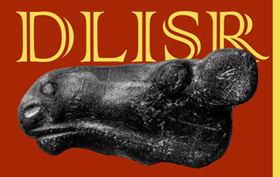Indigenous Science
Resources

| Digital Library of Indigenous Science Resources |
 |

| Introduction | Scope Statement | How to Use DLISR | Participate in DLISR | Credits | Feedback |
Partners Hirvi, Moose The image of Hirvi, Moose, sovereign of the great Boreal Forest of the Northern Hemisphere, was kindly provided by Tero Mustonen, our partner at SnowChange in Finland. The Moose image is copyright NBA Finland, 2005, and it is used with permission. Founded in 2000 "to document and work with local and Indigenous communities of the Northern regions", SnowChange is an independent organization based in Finland. It hosts major workshops, advises and works with major international climate research and policy teams in the North, engages students in research, and records, digitizes, and publishes Indigenous knowledge in a way that "empowers the local people of the changing Arctic." In 2002, SnowChange won the prestigious Worldwide Fund for Nature Panda Prize for best national ecological project. Project Manager Tero Mustonen is a leader of the rarest and most powerful kind, and we are grateful to his steady encouragement and enthusiasm about the DLISR. Described as "the voice and vision of American Indian Higher Education", Tribal College Journal of American Indian Higher Education is a department of AIHEC, the American Indian Higher Education Consortium. There are 36 tribally controlled colleges and universities in the consortium, and their presidents serve as the advisory board for the journal. Founded in 1989, TCJ's growth has paralleled that of the colleges and the teaching, learning, and scholarship they celebrate and facilitate. The TCJ staff has been an unfailing source of encouragement and advice as we've begun the work of establishing the DLISR. It is our hope that the DLISR can, among other things, address the critical issue raised on TCJ's history page: "Although distribution of the journal to tribal college communities has increased dramatically, the number of mainstream universities, colleges, libraries, and tribal educators who subscribe remains lower than we'd like. Many still do not know that the journal exists. How do we reach them?" Indeed, it is time for mainstream academics and policy-makers to include Indigenous resources in their knowledge bases and citation indices. Libraries and institutions without subscriptions should contact TCJ electronically. Winds of Change is an American Indian-published and nationally distributed full-color magazine focusing on career and educational advancement for Native people. Since 1986, the magazine has served as a channel for information and ideas relevant to the needs and interests of students, educators, and professionals. Featured in every issue are articles, interviews and news focusing on career, educational, and cultural interests of American Indians in the areas of science, engineering, technology, business, and education. The magazine is associated with the American Indian Science & Engineering Society (AISES) and includes a quarterly special section of news and program updates about AISES. Winds of Change publishes an Annual College Guide each September that includes extensive data on 200 colleges and universities with American Indian programs and support organizations. Admissions and financial resources specific to Native students, as well as articles on applying to college, preparing for university life, and cultural support on campus are highlighted. Advertising and subscriptions are accepted. Please contact Winds of Change electronically. Return to the DLISR Collection. DLISR is maintained by Tapestry Institute.
|